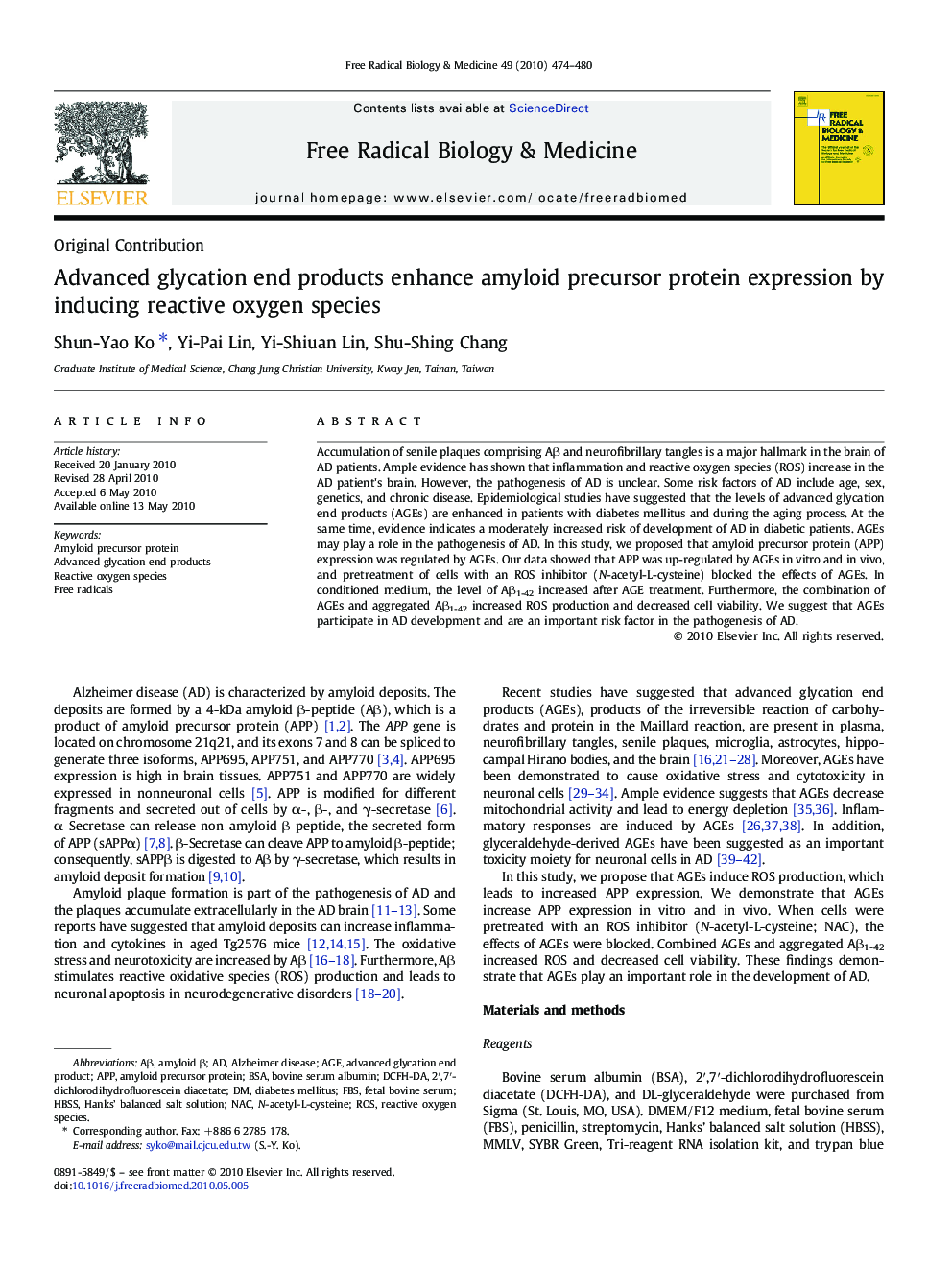| کد مقاله | کد نشریه | سال انتشار | مقاله انگلیسی | نسخه تمام متن |
|---|---|---|---|---|
| 1909446 | 1046724 | 2010 | 7 صفحه PDF | دانلود رایگان |

Accumulation of senile plaques comprising Aβ and neurofibrillary tangles is a major hallmark in the brain of AD patients. Ample evidence has shown that inflammation and reactive oxygen species (ROS) increase in the AD patient's brain. However, the pathogenesis of AD is unclear. Some risk factors of AD include age, sex, genetics, and chronic disease. Epidemiological studies have suggested that the levels of advanced glycation end products (AGEs) are enhanced in patients with diabetes mellitus and during the aging process. At the same time, evidence indicates a moderately increased risk of development of AD in diabetic patients. AGEs may play a role in the pathogenesis of AD. In this study, we proposed that amyloid precursor protein (APP) expression was regulated by AGEs. Our data showed that APP was up-regulated by AGEs in vitro and in vivo, and pretreatment of cells with an ROS inhibitor (N-acetyl-L-cysteine) blocked the effects of AGEs. In conditioned medium, the level of Aβ1-42 increased after AGE treatment. Furthermore, the combination of AGEs and aggregated Aβ1-42 increased ROS production and decreased cell viability. We suggest that AGEs participate in AD development and are an important risk factor in the pathogenesis of AD.
Journal: Free Radical Biology and Medicine - Volume 49, Issue 3, 1 August 2010, Pages 474–480